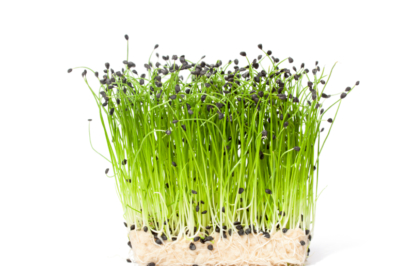The vitamin-rich chive is known by many names: Botanists call it Allium schoenoprasum, and in the vernacular names such as Jacob’s onion, Grusenich or rush leek are common. The plant belongs to the most popular kitchen herbs and in France even to the so-called “fines herbes”. Most often, chives are propagated by division, but you can also grow your own plants from the seeds.

Growing by sowing not with every variety.
However, this method of cultivation is quite tricky. On the one hand, this is because not every variety of chives can be grown from seed – some chives can only be propagated by division – and on the other hand, because propagation by seed is generally not so easy due to possible mutations. In addition, chives are cold germinators, i.e. they need temperatures below 18 °C to be stimulated to germinate at all. For this reason, you can sow the chive seeds directly outdoors from about mid-March to mid-April; preplanting on the windowsill is not necessary.
- Prepare the selected planting site well.
- The location should be preferably semi-shaded; the soil loose, but rich in humus.
- Thoroughly dig up the planting site and remove all weeds.
- Be sure to keep the planting site free of any weeds in the future as well.
- Crush any lumps of soil and rake the area nice and smooth.
- Now you can press depressions into the soil, about two inches deep.
- Scatter the seeds into the depressions, about 300 per yard.
- Chives are dark germinators, which means you need to cover the seeds with soil.
- Keep the soil nice and moist, but protect it from heavy rain.
The seeds usually germinate within about 14 days. If you want to grow chives in a pot, sow a few seeds in a suitable planter and place it on the balcony. In the room, on the other hand, it is often too warm for the chives. Use growing or herb soil for the seedlings.
Care for seedlings
The young seedlings should be protected from
- heavy rain
- frost
- strong sunlight
- and weeds
- be protected. Make sure that the young plants are not too dense, because this hinders growth and promotes the dreaded “falling sickness”. This is a disease caused by fungi, which is favored by a lack of light and air.
Tips & Tricks
You can also make things easier for yourself – if you already have a chive plant and want to propagate it – and let the chives self-seed. It is enough to let some flowers ripen – the later ripened seeds fall to the ground and overwinter there. In the spring, the young plantlets appear.

